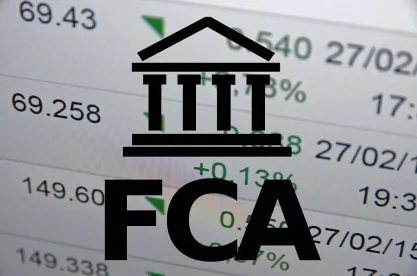DOJ highlights healthcare, housing and mortgage, and procurement fraud as largest areas of recovery; impending changes under the new tax legislation could limit tax deductions for False Claims Act payments.
The US Department of Justice (DOJ) announced recently that its fiscal 2017 recoveries from False Claims Act (FCA) settlements and judgments totaled more than $3.7 billion, bringing total recoveries under the FCA since 1986 to more than $56 billion. While overall total recoveries were down from the $4.7 billion-plus recovered in 2016, recoveries from cases filed by qui tam relators increased to more than $3.4 billion, the second highest recovery in history for this category of cases.
Key Areas of FCA Activity in 2017
-
Healthcare Fraud ($2.4 billion in recoveries). At $2.4 billion in recoveries, 2017 marked the eighth consecutive year that healthcare industry recoveries exceeded $2 billion, closely paralleling the $2.5 billion recovered in 2016. Although substantial sums on their own, these dollar totals do not reflect the significant additional recoveries for state Medicaid programs made with DOJ assistance. The largest subcategory of healthcare recoveries came from the drug and medical device industry, totaling more than $900 million and largely rooted in two matters that alleged, respectively, kickbacks that led to the overuse of lucrative medical products and underpaid rebates under the Medicaid Drug Rebate Program due to an erroneous classification of patented, brand name drugs as generics.
-
Housing and Mortgage Fraud ($543 million in recoveries). The largest 2017 recovery in this category was for approximately $296 million in a jury trial and related to a home mortgage company and its financing arm that DOJ pursued for alleged violations of the FCA and the Financial Institutions Reform, Recovery, and Enforcement Act of 1989 (FIRREA). DOJ alleged that the company falsely certified thousands of high-risk, low-quality loans as eligible for Federal Housing Administration (FHA) insurance and then submitted insurance claims to FHA when any of those loans defaulted. The court also entered judgment for more than $25 million against the company’s President and CEO.
-
Procurement Fraud. Although the DOJ press release did not cite a total dollar amount of recoveries in this category, it noted that in 2017, “the department aggressively pursued a variety of procurement fraud matters.” In addition to at least two nine-figure recoveries related to US Departments of Defense and Energy programs, the press release recounted DOJ’s much publicized $45 million settlement with a software company, which followed allegations that the company provided false information to the General Services Administration (GSA) in securing a federal supply schedule contract to sell software to other governmental agencies.
The DOJ press release also highlighted the important role that FCA whistleblowers, known as qui tam relators, play in uncovering alleged fraud upon the government. In 2017, relators filed 669 lawsuits (approximately 13 per week) and accounted for the lion’s share of FCA recoveries—roughly $3.4 billion, or 92%. That percentage represents a notable uptick from past years, which saw relator-initiated cases comprising 80% and 62% of FCA recoveries in 2015 and 2016, respectively, and highlights the substantial decline in recoveries from DOJ-filed cases, down from 2016’s high watermark of $1.9 billion to only $300 million this past year. In 2017, relators were rewarded with $392 million in FCA bounties.
Further, in line with DOJ’s current focus on individual accountability, DOJ noted that, in a number of FCA cases in 2017 it sought to make corporate owners and executives jointly and severally liable for violations and also pursued other civil remedies to further this significant policy aim.
Lastly, although not discussed in the DOJ press release, substantial increases in the monetary effect of FCA penalties loom near after the president signed into law the Tax Cuts and Jobs Act on December 22, 2017. Section 13306 of the Act makes sweeping changes to the deductibility of FCA-related payments. Under judicial interpretations of US Treasury Department regulations prior to this change, compensatory and remedial payments by defendants, which in some cases include the payment of governmental investigatory expenses and payments to qui tam relators, were generally tax-deductible. Under this change, however, Section 13306 specifically classifies as nondeductible any amounts paid to reimburse the government for investigatory expenses.
Further, going forward, no amount of an FCA payment (or similar payments in other contexts, e.g., payments resulting from enforcement actions by the US Securities and Exchange Commission or Consumer Financial Protection Bureau) is deductible unless expressly identified “as restitution or as an amount paid to come into compliance with [the] law … in the court order or settlement agreement.” To aid in accounting for the deductibility of such payments, the new law requires enforcement agencies to file reports with the Treasury Department that specify precisely which payment amounts from defendants are for either restitution or correction of noncompliance (the only tax-deductible payments).
In short, under this change, defendants’ focus (at least in regards to the tax-deductibility of such payments) should shift from being mindful of the allocation of compensatory vs. punitive amounts to negotiating instead the allocation of restitution and compliance program costs vs. all other amounts, and to argue forcefully for court orders and settlement agreements that clearly call out those amounts.
DOJ’s press release detailing 2017 FCA recoveries serves as a reminder that the FCA remains a powerful and oft-used tool in the government’s arsenal to combat fraud. Companies doing business not only in the sectors outlined above, but all sectors, should continue to dedicate substantial efforts and resources to compliance programs to prevent and identify issues, lest a whistleblower beat the company to the punch.



 />i
/>i
